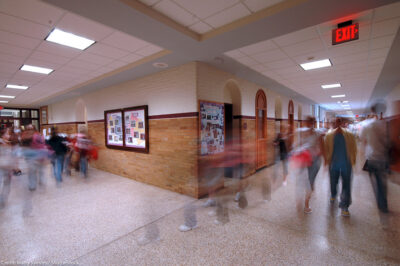Appeals Court Finds Louisiana School Board Improperly Engaged in Sectarian Prayer During Meetings
FOR IMMEDIATE RELEASE
CONTACT: media@aclu.org
NEW ORLEANS—In a religious freedom case brought by a local family and the American Civil Liberties Union of Louisiana, the United States Court of Appeals for the Fifth Circuit has ruled that the Tangipahoa Parish School Board acted improperly by promoting their own sectarian religious beliefs during meetings.
“The federal court has once again had to tell the Tangipahoa Parish School Board that they answer to the Constitution, which requires the government to stay neutral in matters of religion,” said Joe Cook, Executive Director of the ACLU of Louisiana. “Instead of wasting thousands of taxpayer dollars to promote their personal beliefs, the school board members should spend the community’s limited resources providing for a sound, secular education for all students.”
The appeals court upheld the district court finding that the school board had improperly recited sectarian prayers during meetings. Prior to the appeal, both the school board and the ACLU recognized that the school board’s prayer practice fell outside of the 1971 Supreme Court decision in Lemon v. Kurtzman, which held that government action must have a secular purpose, neither advance nor inhibit religion, and not become excessively entangled with religion. However, in filing its appeal, the school board argued that its actions fell under the protection of a 1983 Supreme Court case, Marsh v. Chambers. The Marsh case allows a legislative exception for non-sectarian, non-proselytizing prayers.
Today’s ruling rejected the argument that the prayers were non-sectarian, and instead found that they “aggressively advocate[d] Christianity.” But the court avoided dealing with the central issue of whether school boards in general fall under the Marsh exception.
“In so holding, this opinion takes no position on whether another form of prayer is permissible at Board meetings,” wrote the court. “Instead, it holds that prayers of the type included in the stipulations do not pass constitutional muster.”
The ACLU has long maintained that the Marsh opinion does not apply to school boards. Judge Carl E. Stewart, in a separate opinion, agreed on this point. “I believe the correct course is to affirm the district court’s ruling, especially in light of the fact that the school board stipulated that its practice would fail under Lemon v. Kurtzman,” wrote Judge Stewart. “My belief that Marsh is inapplicable to this situation is supported by the language of Marsh, subsequent Supreme Court precedent, and other Circuits’ application of Marsh.”
Today’s ruling sends the case back to the district court to review the board’s actions in light of the appeals court’s findings.
“Because the court did not rule on the issue most central to the case, the ACLU and its clients are considering whether to request rehearing or appeal,” Cook said. “The Tangipahoa School Board has, by a unanimous vote, refused to adopt a non-proselytizing, non-religious prayer policy, indicating that it intends to continue to engage in unconstitutional activity. We believe the court needs to squarely face the questions presented and make a clear cut decision.”
Stay Informed
Every month, you'll receive regular roundups of the most important civil rights and civil liberties developments. Remember: a well-informed citizenry is the best defense against tyranny.




